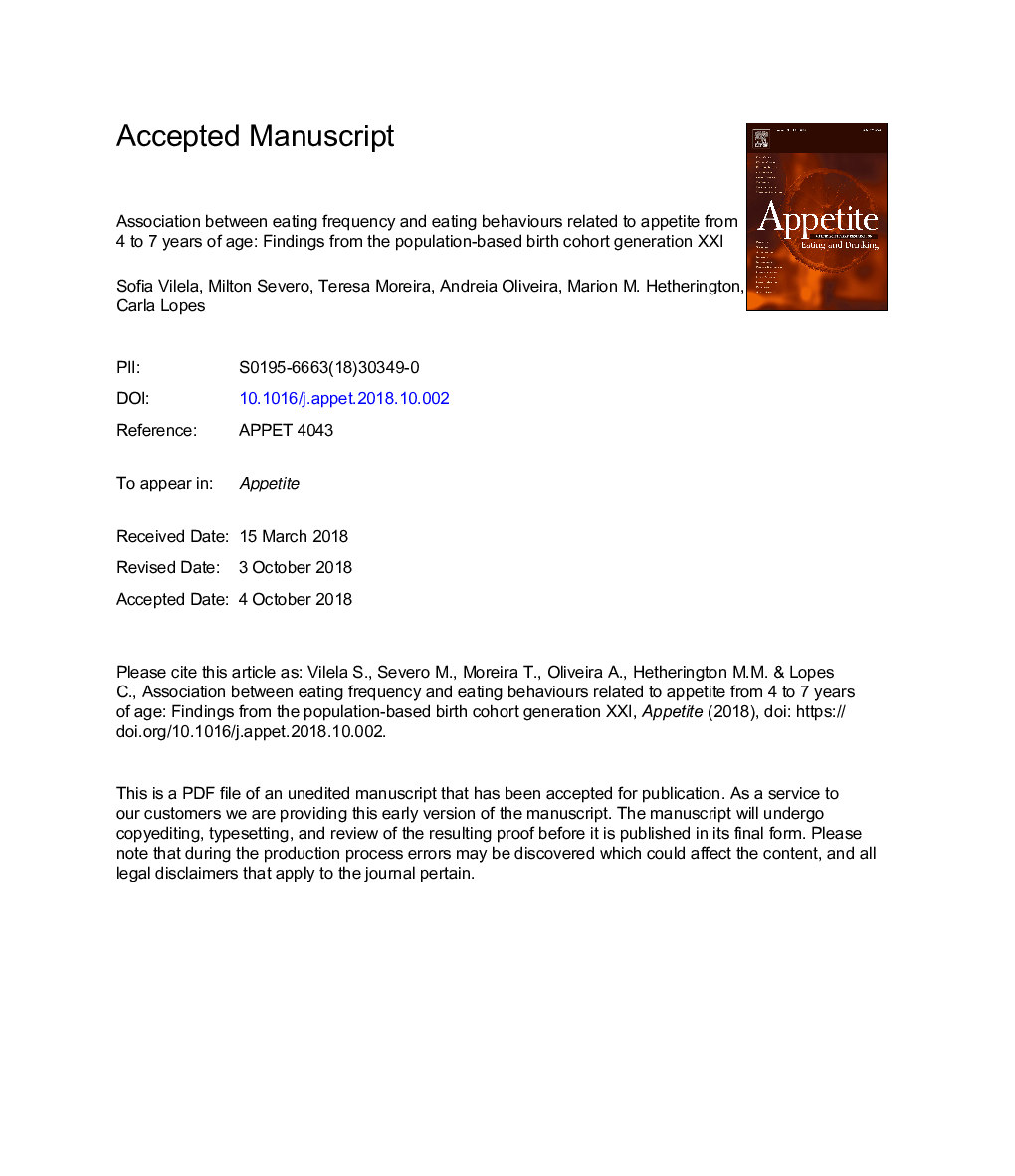| کد مقاله | کد نشریه | سال انتشار | مقاله انگلیسی | نسخه تمام متن |
|---|---|---|---|---|
| 11020574 | 1716294 | 2019 | 25 صفحه PDF | دانلود رایگان |
عنوان انگلیسی مقاله ISI
Association between eating frequency and eating behaviours related to appetite from 4 to 7 years of age: Findings from the population-based birth cohort generation XXI
دانلود مقاله + سفارش ترجمه
دانلود مقاله ISI انگلیسی
رایگان برای ایرانیان
کلمات کلیدی
موضوعات مرتبط
علوم زیستی و بیوفناوری
علوم کشاورزی و بیولوژیک
دانش تغذیه
پیش نمایش صفحه اول مقاله

چکیده انگلیسی
The examination of specific characteristics of eating habits in childhood and its influence on eating behaviours is needed to better understand the establishment of appetite-related eating behaviours. This study aimed to assess the association between eating frequency (EF) (main meals vs. snacks) at 4 and 7y and problematic eating behaviours and appetite-related eating behaviours at 7y. The analysis included 1359 children from the birth cohort Generation XXI who provided 3-day food diaries, at both ages, and complete information on the Child Eating Behaviour Questionnaire, at 7y. Problematic eating behaviours were assessed using parental perception of child's poor eating (including not eating enough, eating too slow or overeating) at both ages. A time-of-day approach was used to distinguish main meals from snacks. A cross-lagged analysis was performed to check the direction of the association between EF and parental concerns regarding problematic eating behaviours. Associations between EF and appetite-related eating behaviours were evaluated through linear regression models. Between 4 and 7y a moderate tracking of EF was described as well as a strong tracking of parental concerns. We found a bidirectional relationship between EF and parental concerns. Prospectively, a higher frequency of snacks at 4y was independently associated with higher scores in 'Desire to Drink' at 7y (βâ¯=â¯0.051, 95%CI:0.009; 0.093). At 7y, a higher EF had a positive association with 'Satiety Responsiveness' but an inverse association with 'Enjoyment of Food'. A higher number of main meals had a positive association with 'Enjoyment of Food' and 'Food Responsiveness'. In conclusion, children who had more eating occasions seem to have more food-avoidance behaviours, traits that might protect these children from gaining excessive weight.
ناشر
Database: Elsevier - ScienceDirect (ساینس دایرکت)
Journal: Appetite - Volume 132, 1 January 2019, Pages 82-90
Journal: Appetite - Volume 132, 1 January 2019, Pages 82-90
نویسندگان
Sofia Vilela, Milton Severo, Teresa Moreira, Andreia Oliveira, Marion M. Hetherington, Carla Lopes,